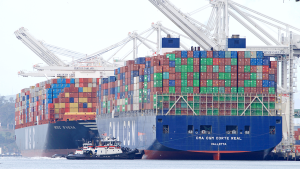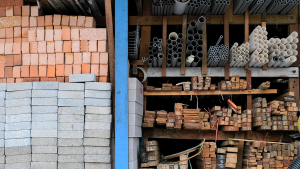It is no secret that current construction material prices are volatile, unpredictable and rising. The pandemic has given rise to supply and demand problems across the economy and the impact on construction materials is no exception. In an industry where most jobs are bid based on a fixed price, price volatility has the potential to hand contractors big losses, especially when jobs are awarded months after the tender date.
The president of the Ontario General Contractors Association Giovanni Cautillo has been quite outspoken recently on material price escalation and the affect it is having on general contractors’ ability to properly price jobs.
“The global pandemic has greatly affected the supply chain and most construction products and items have been affected. The resultant influence is that all subtrades and suppliers are now only holding their pricing to the general contractors for no more than 30 days. In the vast majority of the instances, the supply chain validity period is as low as 48 hours.”
On a fixed price contract, this inability to hold pricing means that rising costs would eat away at profit margins, affecting a contractor’s ability to properly price out and execute a contract profitably. From a bond company’s perspective, material price escalation is a concern because ultimately it could lead to financial difficulty and bond claims. In a climate of rising prices, the following are some of the pitfalls that can limit your capacity:
- If inflation causes unforeseen material price increases and you don’t have contingencies, or contractual remedies, any financial losses that occur may affect your bond limits.
- In some instances, material costs have doubled year over year. A contract with a high material component could cost 50 per cent or more than it did last year. Even if you have accounted for the price increase, you could still be in a tight position because the job size may now be higher than your single contract limit.
- Surety companies may react by restricting capacity across the board and putting tighter underwriting guidelines in place. This macro thinking can lead to a shift in the marketplace with a more conservative approach taken.
- Surety companies will increasingly want to know what measures you have taken to mitigate these risks. If there are insufficient mitigation practices in place, this too could erode a surety’s confidence potentially impacting your capacity.
On the topic of protecting against material price increases, Cautillo had this to say: “The best ways for general contractors to offset the ever-increasing costs brought on by the supply chain fluctuations are to: minimize the validity period on open tenders to as close to 30 days as possible; include escalation clauses in contracts; or for those contractors with ongoing projects, communicate with the owner and try to renegotiate on how to address these fluctuations jointly.”
We also spoke with Jeff Scorgie, an associate lawyer from Toronto-based construction law firm WeirFoulds LLP, for his legal perspective.
“If a subcontractor has already signed a subcontract, the first step is to consult the terms of the agreement. Unfortunately, market fluctuations and material cost increases rarely entitle a subcontractor to additional compensation under a fixed price contract. On future projects, one option that can mitigate some of the risk posed by material cost increases is to include a material price escalation clause in the subcontract. The general concept of such a clause is that the subcontractor would be entitled to an adjustment in the contract price if the cost of a material increased beyond a defined threshold after the subcontract was signed. It will be up to the subcontractor to justify and push for the inclusion of the clause early and not wait until the last minute (such as after it has submitted its price or been awarded the subcontract).”
There are other options available to a contractor to mitigate price increase risk with some more realistic than others.
These include building adequate contingencies into your bid; negotiating a fixed price with suppliers; limiting a supplier’s ability to raise prices to a fixed amount; purchasing materials early in anticipation of a start date; and speaking with your legal counsel for advice on what contractual language can be used.
Rising material costs present a serious and significant risk in today’s marketplace. A surety company’s interest is and should be aligned with a contractor’s best interests.
As a contractor you should have a mitigation plan in place and this should be communicated to your bonding company. Ultimately a contractor’s success is a surety company’s success. As you work through these tricky days, be sure to consider your surety company and take steps to ensure your capacity remains strong and stable.
Andrew Cartwright is the vice-president of surety for FCA Insurance. With over 10 years of experience as an RVP of a large national surety company, Cartwright uses his expertise to help FCAs clients manage and build their surety capacity. Chris Dardarian is a surety bond broker at FCA Insurance. He has been in the industry for 15 years working as both a surety bond underwriter and a broker in Ontario and Quebec. Chris has helped numerous growing contractors access higher surety capacity to meet their goals.
Send comments and column ideas to editor@dailycommercialnews.com.










Recent Comments
comments for this post are closed